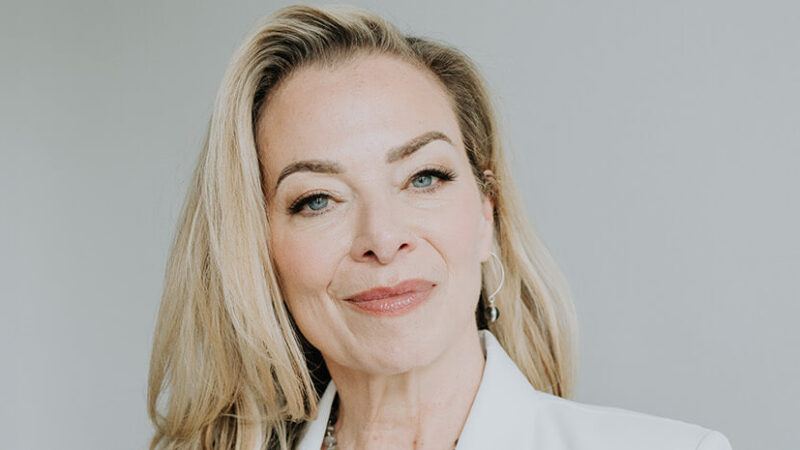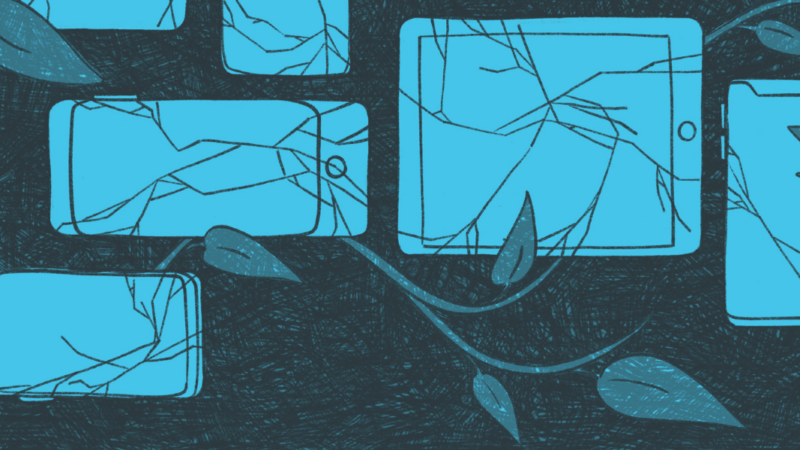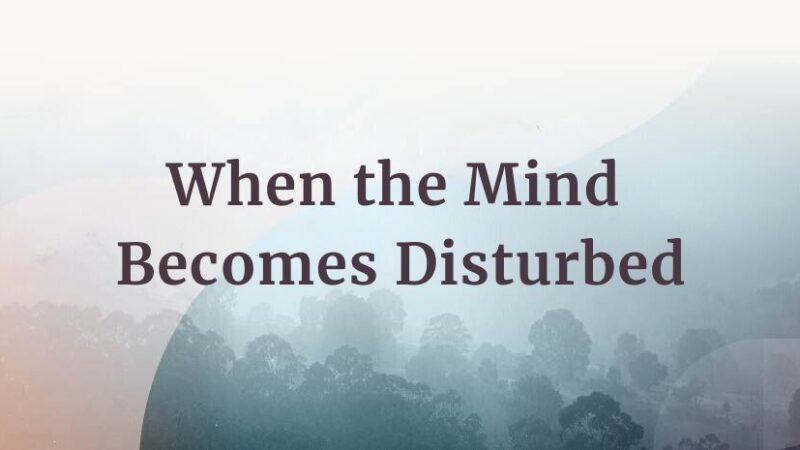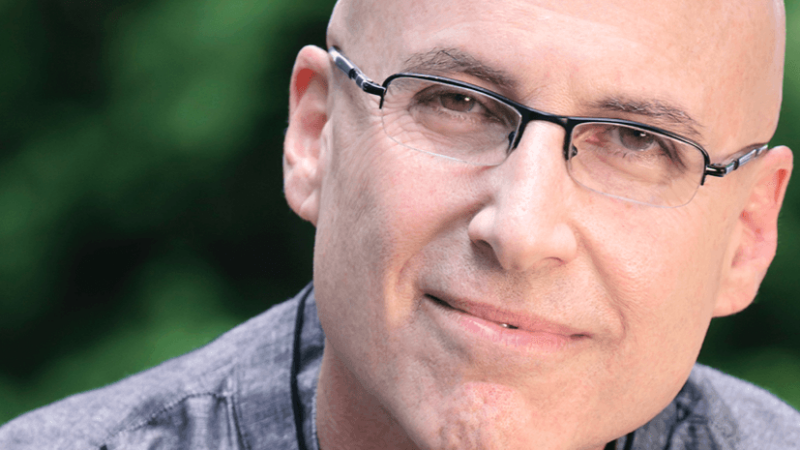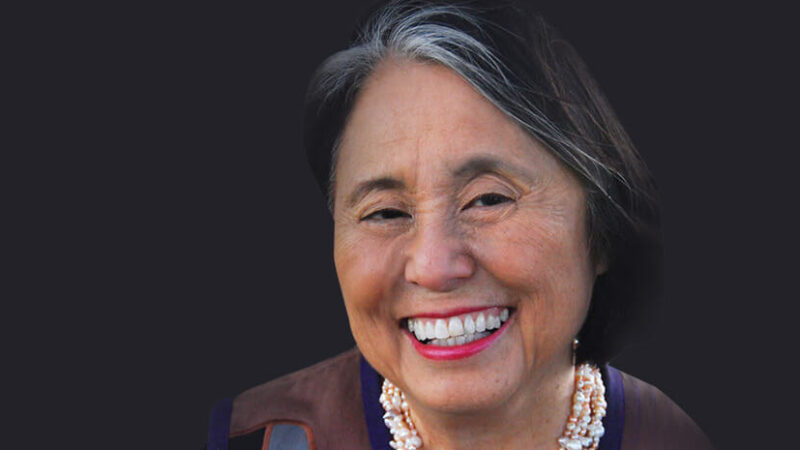-
E99: Why Spiritual Experiences Are Not Enough
Michael Singer — July 30, 2025
Spiritual liberation is not about attaining extraordinary experiences; it is about releasing the...
-
Guy Shahar and Melinda Edwards, MD: “Sensitivity Is at the Heart of Autism”
In part one of this two-part conversation in our Being Open podcast series, Tami Simon speaks with...
-
Honey Tasting Meditation: Build Your Relationship with Sweetness
There is a saying that goes “hurt people hurt people.” I believe this to be true. We have been...
Written by:
Amy Burtaine, Michelle Cassandra Johnson
-
Many Voices, One Journey
The Sounds True Blog
Insights, reflections, and practices from Sounds True teachers, authors, staff, and more. Have a look—to find some inspiration and wisdom for uplifting your day.
Standing Together, and Stepping Up
Written By:
Tami Simon -
The Michael Singer Podcast
Your Highest Intention: Self-Realization
Michael Singer discusses intention—"perhaps the deepest thing we can talk about"—and the path to self-realization.
This Week:
Guy Shahar and Melinda Edwards, MD: “Sensitivity Is at the Heart of Autism” -
Many Voices, One Journey
The Sounds True Blog
Insights, reflections, and practices from Sounds True teachers, authors, staff, and more. Have a look—to find some inspiration and wisdom for uplifting your day.
Take Your Inner Child on Playdates
Written By:
Megan Sherer
600 Podcasts and Counting...
Subscribe to Insights at the Edge to hear all of Tami's interviews (transcripts available, too!), featuring Eckhart Tolle, Caroline Myss, Tara Brach, Jack Kornfield, Adyashanti, and many more.
Most Recent
Terri Cole: High-Functioning Codependency—Breaking t...
High-functioning codependency? That’s not an oxymoron. For psychotherapist Terri Cole, a pattern emerged in her practice that led her to take a deeper look at what we traditionally define as codependent. With her new book, Too Much, Terri introduces high-functioning codependency (or HFC)—illuminating the key traits and behaviors associated with HFC, how it gets passed from generation to generation, and how we can finally break the cycle to reclaim our time, energy, and independence.
Join Sounds True founder Tami Simon in conversation with Terri Cole about: giving unsolicited advice; the habit of auto-accommodating; the FAQ “is this codependent, controlling, or caring?”; the compulsive nature of codependency; when efforts to help backfire; allowing others to experience the consequences of their actions; giving without resentment; how to know if you’re an HFC; taking a resentment inventory; the emotional drivers of HFC; the environmental factors that propagate codependency; self-awareness on the path of recovery; tolerating the discomfort of changing our behaviors; the connection between being easily defensive and HFC; letting go of defensiveness as an HFC; getting back to your “just right”; and more.
Note: This episode originally aired on Sounds True One, where these special episodes of Insights at the Edge are available to watch live on video and with exclusive access to Q&As with our guests. Learn more at join.soundstrue.com.
Learning the Art of Thriving Online
Amelia Knott is an art psychotherapist who specializes in the mental health impacts of hustle culture and social media. In the video below (3:22 minutes), she shares her inspiration behind her written and illustrated workbook, The Art of Thriving Online: Creative Exercises to Help You Stay Grounded and Feel Joy in the World of Social Media and invites you in on the journey of reimagining a healthier relationship with the digital world.
https://soundstrue-ha.s3.amazonaws.com/video/Learning-the-Art-of-Thriving-Online.mp4
You can also read the video transcript below:
It’s been half my life—literally half the years of my life—lifting my chin for pictures, anticipating the critical gaze of a digital audience, offering my presence half-heartedly to the world around me to to draft a clever caption, choose a flattering filter, and watch as my phone tells me if this time my work will be rewarded with worthiness.
Too many nights avoiding myself, letting the blue-light-lullaby of my screen become a substitute for true soothing. It’s been half my life; holding up the mirror of comparison to everyone’s best days and hottest takes, highlight reels curated with effortless nonchalance, and now the mirror of comparison to a perfected self made in the algorithm’s image. It’s been half my life of fractured attention, commodified vulnerability, fury, and fear taking turns with despondence.
What if my real life stopped being my body or the land, and became the non-place I devote my hours to?
And it’s been half my life wandering daily into the galleries of artists’ and thinkers’ most beautiful ideas. Half my life keeping far-away loved ones close.
It’s true that the Internet gave me my career, my marriage. It made visible the threads of similarity across a quickly dividing globe. It showed me life-saving examples of people who survived what I needed to survive and it broke my heart open at the things no one should have to.
I like to misquote Carl Jung when he said something almost like “a paradox is our most valuable spiritual tool.” I’m not interested in finding the elusive, singular hack that will make screen time less alluring forever. I’m not interested in a lifetime of cycling through eras of detox and excess. Vacillating between the high of a new regimen and the crash of shame when social media works once again, exactly as it was designed.
I’m a therapist. I know that hacks can be tools, or bandaids. A self-help, step-by-step, sales pitch plan can feel like salvation, but it’s not the medicine of being in an evolving conversation with yourself. I am more interested in making art. I’m more interested in learning to tolerate the tension between social media’s danger and its magic. I’m more interested in learning to like myself, unsolved.
And when I’m learning the same lesson, again, the hard way, I know that my allies in finding safe passage through the digital age are art and writing. Creativity is how we imagine a different future.
So I wrote us this book. It’s a place to start that conversation with yourself about what is really happening between you and your screen; who profits from the ways it harms you, and how to protect the parts of it that are genuinely good, because parts of it are.
So if you are ready to join me—an art psychotherapist who both loves the life her phone enables and desperately needs to put it down—we’ll make some art. We’ll sit in the stunning and maddening paradox, and we’ll find creative ways to author our own definitions of real wellbeing when we choose to be on social media.
And together we’ll find the art of thriving online.
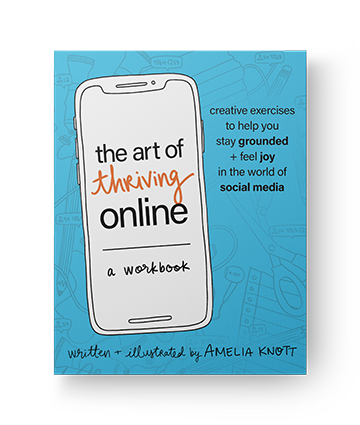
The Art of Thriving Online: A Workbook
Amazon | Barnes & Noble | Bookshop | Sounds True

Amelia Knott
E16: When the Mind Becomes Disturbed
The mind, like the ocean, can be calm or disturbed, but the same consciousness is observing both states. Rather than trying to fix or overreact to a disturbed mind, one can learn to step back and observe the disturbance without feeding it. Ultimately, ceasing to thrash around in the disturbed mind allows the mental energies to settle down naturally. This process of letting go of the impulse to struggle leads to greater inner peace and spiritual growth over time.
For more information, go to michaelsingerpodcast.com.
© Sounds True Inc. Episodes: © 2024 Michael A. Singer. All Rights Reserved.
Customer Favorites
The Self-Acceptance Project… a free online video...
Access the Self-Acceptance Project free of charge
Self-aggression, self-acceptance, self-love, and issues of self-worth can be challenging for contemporary spiritual practitioners, even for those who have meditated or engaged in psychotherapy for years. There are many ways we can be unkind to ourselves, often subtle and unconscious, which can affect the way we perceive and engage in our lives, especially in interpersonal and intimate relationship.
In this free, 12-week video event series, I invited 23 psychologists, psychotherapists, neuroscientists, and spiritual teachers to speak with my friend and longtime colleague, Tami Simon, to explore these areas and how we might move toward the creation of a certain kind of holding environment in which we can grow, heal, and transform together.
All episodes of the Self-Acceptance Project are now posted and can be accessed as video or audio downloads, or can be streamed at no cost from the comfort of your own home. We invite you to join us for this pioneering series and look forward to sharing our discoveries with you – and hearing what you have learned. It is our intention that you benefit deeply from this work and that it guide you along your own journey of love and awakening.
Episodes include
- Developing Shame Resilience with Dr. Brené Brown
- Waking Up from the Trance of Unworthiness with Dr. Tara Brach
- Turning Towards Our Pain with Dr. Robert Augustus Masters
- Begin Exactly Where You Are with Jeff Foster
- Taking in the Good with Dr. Rick Hanson
- The Human Capacity to Take Perspectives with Dr. Steven Hayes
- What if There is Nothing Wrong with Raphael Cushnir
- No Strangers in the Heart with Mark Nepo
- Transforming Self-Criticism into Self-Compassion with Dr. Kelly McGonigal
- Faith in Our Fundamental Worthiness with Sharon Salzberg
- Developing a Wise Mind with Dr. Erin Olivo
- Embodied Vulnerability and Non-Division with Bruce Tift
- Perfect in Our Imperfection with Colin Tipping
- Staying Loyal to One’s Self with Dr. Judith Blackstone
- Compassion for the Self-Critic with Dr. Kristin Neff
- Curiosity is the Key with Dr. Harville Hendrix
- Kindness is the Means and End with Geneen Roth
- Healing at the Level of the Subconscious Mind with Dr. Friedemann Schaub
- Embracing all of Our Parts with Dr. Jay Earley
- Understanding Empathy and Shame with Karla McLaren
- Integrating the Shadow with Dr. Parker PalmerLetting Life Be in Charge with Cheri Huber
Not Being a Prisoner to Your Nervous System
Jeffrey Rutstein, PsyD, is a clinical psychotherapist, trauma expert, and a longtime student and teacher of meditation. In collaboration with Sounds True, Dr. Rutstein is hosting the upcoming Healing Trauma Program: A Nine-Month Training to Regulate Your Nervous System, Embody Safety, and Become a Healing Presence. In this episode of Insights at the Edge, Tami Simon speaks with Dr. Rutstein about the physical aspects of trauma and how to understand their influences on daily life. He explains his model of “the owner’s manual of your nervous system” and how actively reading your body state is the first step to unraveling traumatic aftereffects. Tami and Dr. Rutstein also discuss self-regulation during stressful situations, practices for anchoring in the body, and how our understanding of trauma has evolved over time. Finally, they talk about consciously interrupting trauma-born behaviors, as well as the ongoing work of teaching emotional literacy and resilience.
Becoming Who You Are Meant to Be
Jean Shinoda Bolen, MD, is a Jungian analyst and clinical professor of psychiatry at the University of California, San Francisco. An internationally renowned lecturer and workshop leader, she is author of The Tao of Psychology, Goddesses in Everywoman, Close to the Bone, Like a Tree, and more. She is also a fellow of the American Psychiatric Association (APA) and a past chairperson of the Council of National Affairs of the APA.
In this podcast, Dr. Bolen joins Sounds True founder Tami Simon to reflect on her many years as a writer, teacher, and activist, and how doing our “soul work” becomes the path to self-actualization, connection, and contribution throughout our lives. They also discuss our innate capacity for love and awe; becoming a whole-brain person; speaking up as a key aspect of individuation; gratitude and appreciation; the dandelion effect, or how seeds of beneficial ideas are carried to fertile ground; navigating liminal times; the predicament of “just doing time” with our lives; connecting with loved ones we’ve lost; becoming more familiar with your “dark side of the moon”; the metaphor of the millionth circle; and more.
